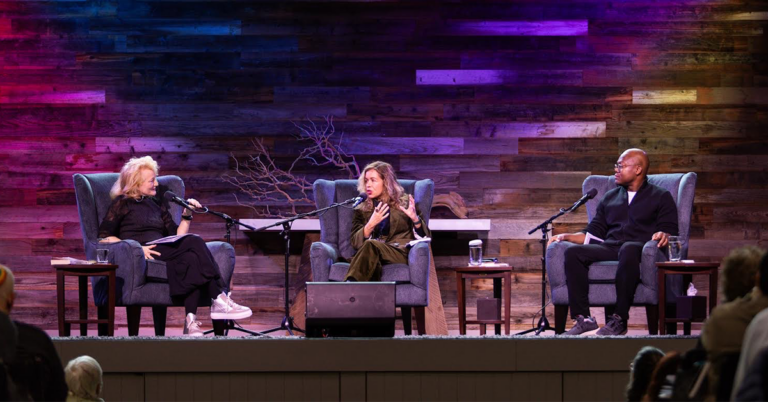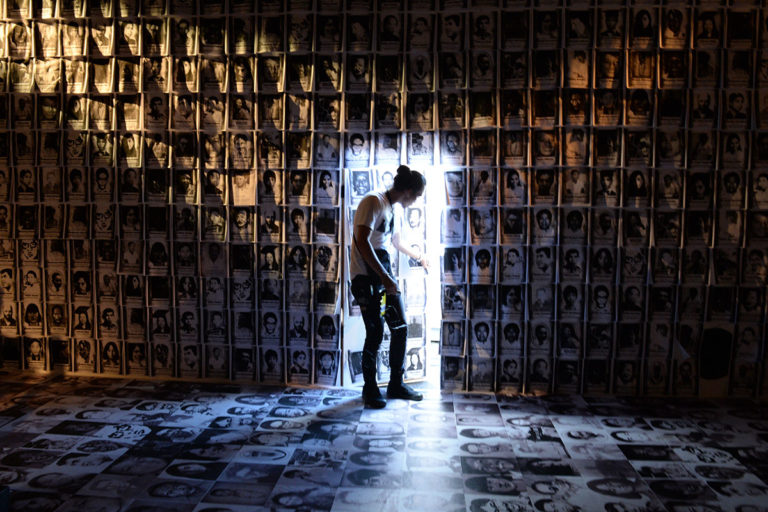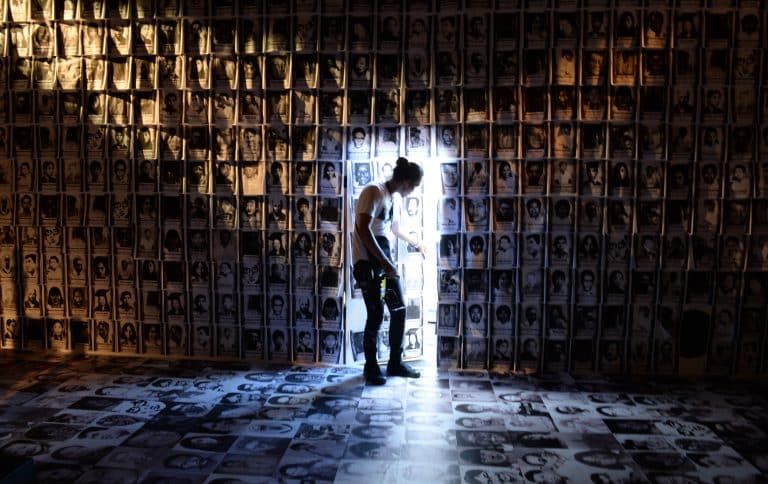May 23, 2024
Lyndsey Stonebridge and Lucas Johnson
On Love, Politics, and Violence (Channeling Hannah Arendt)
Here is a stunning sentence for you, written by Lyndsey Stonebridge, our guest this hour, channeling the 20th-century political thinker and journalist Hannah Arendt: “Loneliness is the bully that coerces us into giving up on democracy.” This conversation is a kind of guide to generative shared deliberations we might be having with each other and ourselves in this intensely fraught global political moment: on the human underlay that gives democracy its vigor or threatens to undo it; on the difference between facts and truth — and on the difference between violence and power. Krista interviewed Lyndsey once before, in 2017, after Hannah Arendt’s classic work, The Origins of Totalitarianism, had become a belated runaway bestseller. Now Lyndsey has published her own wonderful book offering her and Arendt’s full prescient wisdom for this time. What emerges is elevating and exhilaratingly thoughtful — while also brimming with helpful, practicable words and ideas. We have, in Lyndsey’s phrase, “un-homed” ourselves. And yet we are always defined by our capacity to give birth to something new — and so to partake again and again in the deepest meaning of freedom.
Hannah Arendt’s other epic books include The Human Condition, and Eichmann in Jerusalem, in which she famously coined the phrase “the banality of evil.” She was born a German Jew in 1906, fled Nazi Germany and spent many years as a stateless person, and died an American citizen in 1975. This conversation with Lyndsey Stonebridge happened in January 2024, as part of a gathering of visionaries, activists, and creatives across many fields. Krista interviewed her alongside Lucas Johnson, a former leader of the International Fellowship of Reconciliation who now leads our social healing initiatives at The On Being Project.



